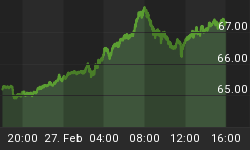With news of a compromise on extending the Bush tax cuts, recent strength in the U.S. dollar, and signals from China it may raise interest rates, it is a good time to check on the health of weak-dollar assets, such as commodities (DBC). Commodities, especially hard commodities like copper (JJC) and gold (GLD), are often used as a way to protect purchasing power during periods where concerns about future inflation are elevated.
In general, commodities tend to have a tailwind when the U.S. dollar is weak, and a headwind when the greenback strengthens. The extension of the Bush tax cuts could add as much as half a percentage point to U.S. GDP in 2011. Stronger economic growth in the U.S. could propel the dollar higher and put some pressure on commodities.
If we compare the early stages of the last bull market in commodities to the current bull market, it allows us to better assess the ongoing investment merit of copper, silver (SLV), gold, wheat, etc. MACD is a technical indicator used to monitor the strength of a trend. The chart below shows one way to use MACD in the context of the CRB's last bull market.

The chart below allows us to compare and contrast the last bull market (above) with the present day gains in commodities.

While we need to keep an eye on the U.S. dollar, there are currently no major concerns relative to the longer-term investment trends in commodities. Pull backs, and even violent corrections, are to be expected during any bull market. As long as technical and fundamentals factors continue to be supportive of higher commodity prices, we should err on the side of maintaining exposure to this asset class.















